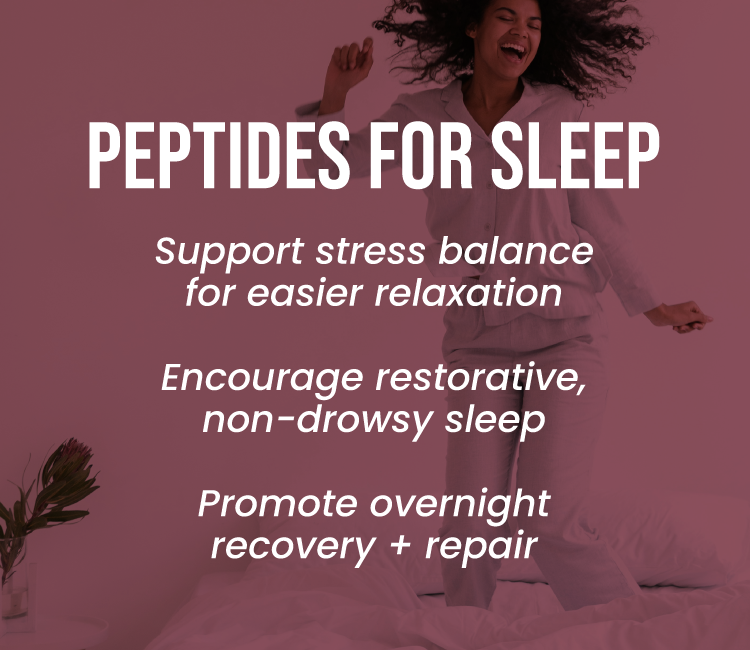
Discover how peptides may support restful sleep by helping balance stress, promote recovery, and work in harmony with the body’s natural rhythms for better rest.
Sleep is the foundation of health; it’s the time when your body repairs itself, your mind processes the day, and your energy stores are replenished. Yet, in today’s busy world, quality sleep can feel elusive. From general stress to screen time, countless factors disrupt our ability to get the rest we need. Enter peptides: a groundbreaking, natural approach to improving sleep and helping you wake up feeling truly refreshed.
The importance of sleep goes beyond avoiding day-to-day fatigue. It impacts nearly every aspect of your health, including:

Many people seek ways to improve sleep quality and overall restfulness. Peptides are believed to support the body’s natural processes that influence healthy sleep patterns. Rather than forcing sleep, they work in harmony with the body’s own rhythms to promote a more balanced approach to rest.
How? Peptides are short chains of amino acids that act as natural messengers in the body, supporting various biological processes. When it comes to sleep, certain peptides are believed to play a role in promoting rest and recovery by working with the body’s natural rhythms.

While peptides can play a key supportive role in optimizing your sleep, their potential benefits are amplified when paired with healthy habits. Here are some tips for building a sleep-friendly routine:
As research into peptides continues, their role in overall wellness and recovery is becoming more widely explored. Whether you’re an athlete, business professional, or simply looking to support better sleep, adding peptides to your routine may be one more tool to prioritize rest in a world that rarely slows down.

Once broken by injury and loss, he’s now thriving with family, fitness, and MAKE Wellness.
read
Try 3 simple yet effective shifts to refresh your mental health. Improve focus, clarity, and energy naturally with guidance from MAKE Wellness experts.
read
After months of anticipation… it’s finally here.
read